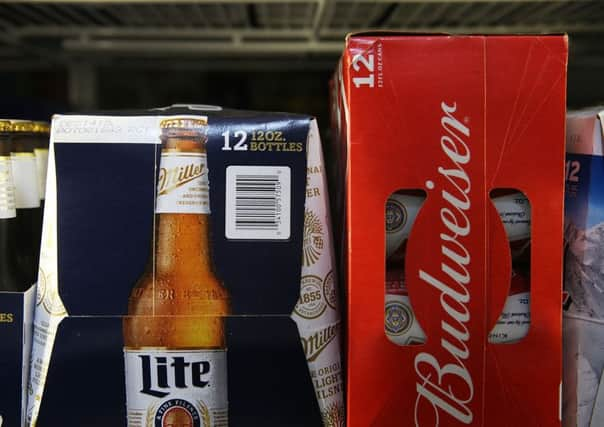Comment: Drinks consolidation party resumes


That year Belgium-based InBev took over the American giant Anheuser‑Busch in an agreed deal, and Heineken of the Netherlands and Denmark’s Carlsberg carved up the old Scottish & Newcastle Breweries in an originally unwelcome, but finally recommended, deal.
Since then the story for the industry has been the continuing flatness of volumes in western markets such as the UK and Europe, and the resulting move for growth to emerging markets instead. But the impetus has been overwhelmingly organic apart from bolt-on acquisitions and sundry brewing joint ventures.
Advertisement
Hide AdAdvertisement
Hide AdAB InBev now wants to hit the acquisition trail again in a big way, bringing brands such as Budweiser, Stella Artois and Corona into an SABMiller brand family spearheaded by Peroni and Grolsch. But the suitor has currently only put in a proposal for a combination rather than any precise terms. It has until 14 October to firm up its offer or walk. Such a combination with SABMiller would obviously face regulatory scrutiny given the size of the two players.
But the only main overlap of operations is in America and China, so perhaps a deal would get through with the sale of some assets in those countries.
There would be cost savings elsewhere from de-duplication, but beer tends to be produced locally from discrete sites so there would a limited amount that could be taken out.
This looks more a strategic move by AB InBev to increase its exposure to emerging markets. About 60 per cent of SABMiller’s profits come from those markets. The figure is appreciably lower for AB InBev.
Some might argue that the timing is poor given the well‑aired economic problems in emerging markets in the past two or three years.
But economic slowdowns are cyclical. Longer term, those emerging markets will come back economically, and that is what is governing AB InBev’s thinking.
One interesting side aspect is that AB InBev has its primary listing on the Euronext Brussels stock market, with a subsidiary listing on Wall Street.
SABMiller has its main listing in London, and a secondary listing in Johannesburg, given South Africa is its historical heartland. Would the latter two listings be deemed necessary after any combination with AB InBev?
Advertisement
Hide AdAdvertisement
Hide AdMy guess is yes, as far as London is concerned, for both the cachet and clout a listing there still carries. And, perhaps also yes as regards Johannesburg, as much for political and public relations reasons as anything else.
JD more than OK as profitability soars
THE continuing success of JD Sports and Sports Direct is living proof that the segue of sportswear into day‑to‑day clothing is ever more ubiquitous. Not so much dress down Fridays as dress down most days.
The sports clothing and trainers empires go from strength to strength (even with the periodic corporate governance rows at Sports Direct).
JD Sports revealed yesterday record interim profits up 88 per cent. The group, which owns the bulk of Scots outdoor goods chain Tiso, shows a clean pair of heels to many other envious high street players.